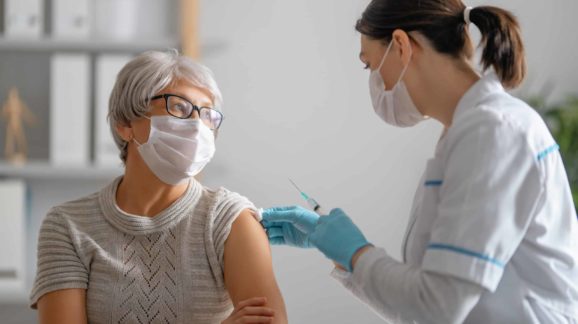Why Are We Vaccinating People Who Have Recovered from COVID-19?
The most effective use of limited supplies would be restricted to those who have never been infected.
Now that Pfizer and Moderna have received emergency-use authorizations for their COVID-19 vaccines, the tough work of deciding how to allocate the limited supply of doses begins. Both vaccines, which require two doses per person, will be in short supply for months, and the shortage will be exacerbated by the CDC’s counterintuitive and counterproductive recommendation that people who have already had COVID-19 be offered the new vaccines along with people who have never been infected with the SARS-CoV-2 virus, which causes the disease.
Why, in the middle of a pandemic, when limited supplies necessitate vaccine rationing, does the CDC recommend vaccinating people who are likely already immune? The experts claim that the nature and duration of protective immunity generated by exposure to SARS-CoV-2 is unknown, so even recovered patients should be vaccinated. This rationale runs counter to what we know about viruses in general and about SARS-CoV-2 in particular.
Normally, exposure to a virus, either through natural infection or by vaccination, elicits an immune response. This protects against future transmission and mitigates the disease’s severity if the person is exposed to the same virus again. According to the Children’s Hospital of Philadelphia, “natural infection almost always causes better immunity than vaccines.” Since, at this early stage, no one knows how long immunity from the COVID-19 vaccines will last, there is little reason to think natural immunity to COVID-19 is inferior to vaccine immunity.
This intuition is borne out by what we know about coronaviruses and SARS-CoV-2. Natural immunity from infection with two other coronaviruses, SARS and MERS, that are closely related to SARS-CoV-2 lasts for years. Antibodies to these two viruses wane over time but generally are still detectable one to three years after illness. While the strength and longevity of the immune response in COVID-19 is currently uncertain, all people infected by SARS-CoV-2, even if they remain asymptomatic, seem to develop an immune response. Despite millions of cases worldwide and widespread monitoring, confirmed reports of reinfection after recovery from COVID-19 have been rare, and nonexistent within 90 days of recovery from the initial infection. And a just-published study of health-care workers in English hospitals found that having positive antibodies substantially reduced the risk of new SARS-CoV-2 infection over the following six months.
Even if natural immunity is relatively ephemeral, there is no point in using scarce vaccines for someone who is immune now when those doses could protect someone who has no immunity. Vaccine supplies will be more abundant if and when natural immunity wanes in six months or a year.
Read the full article at National Review.
